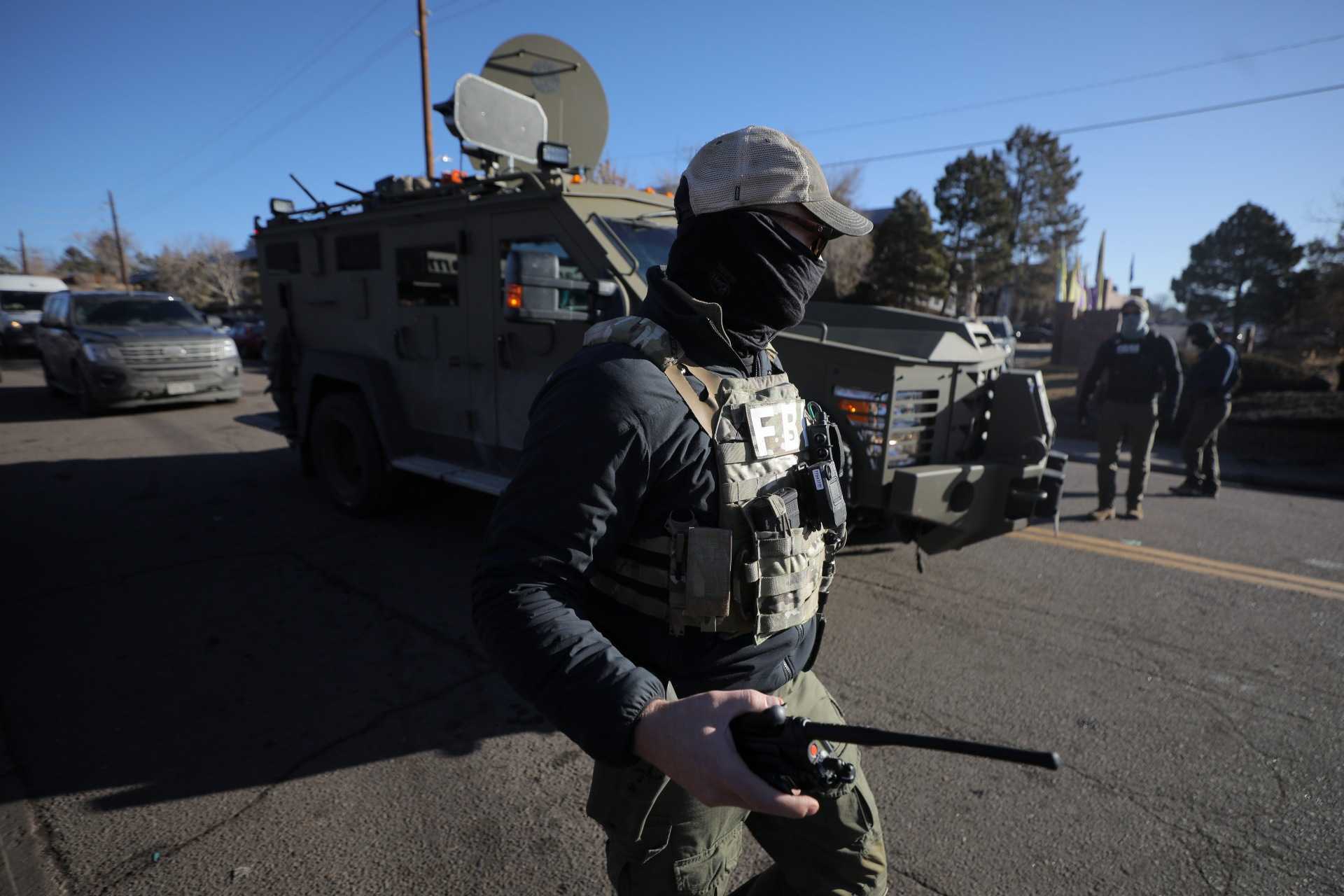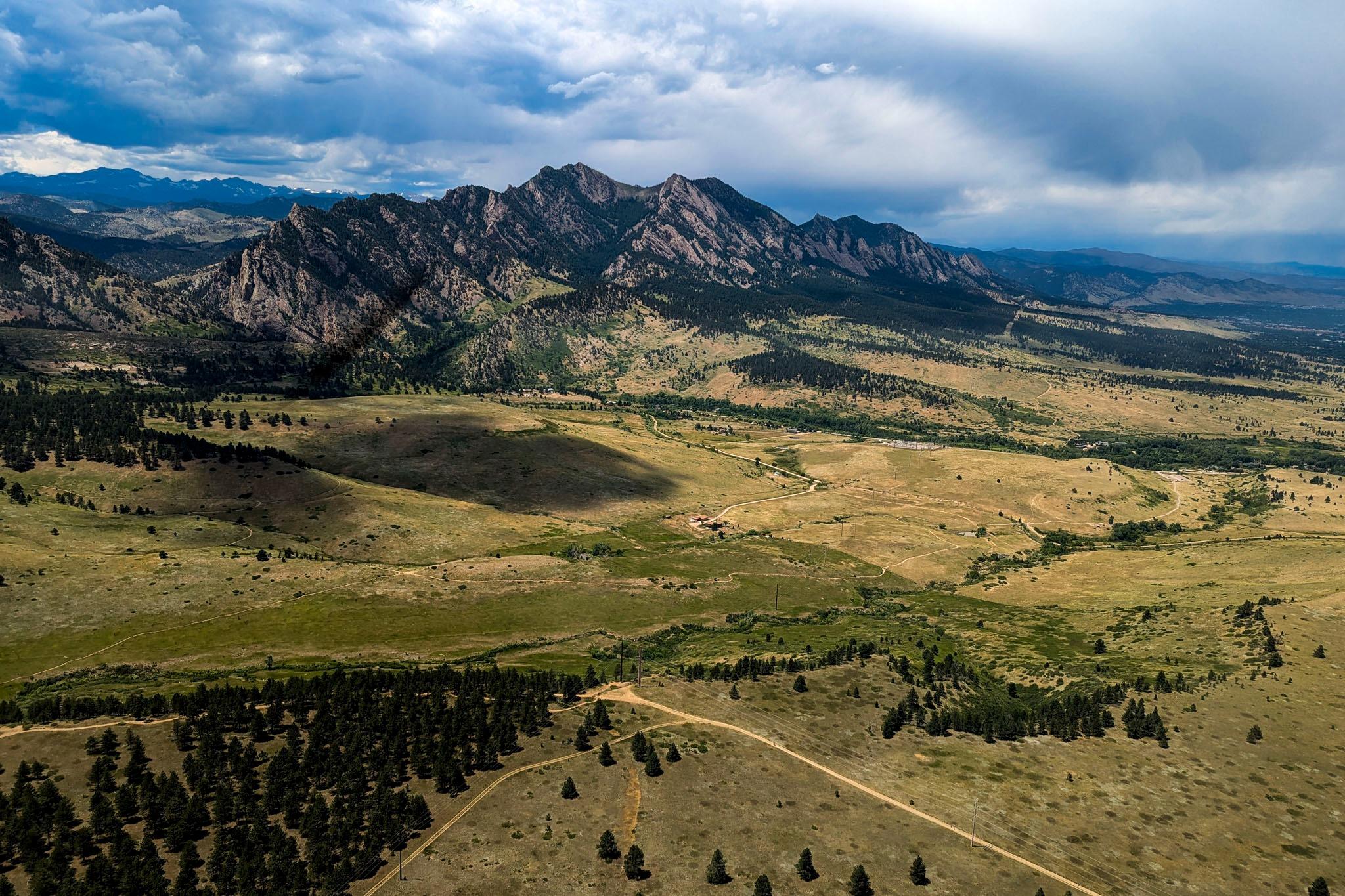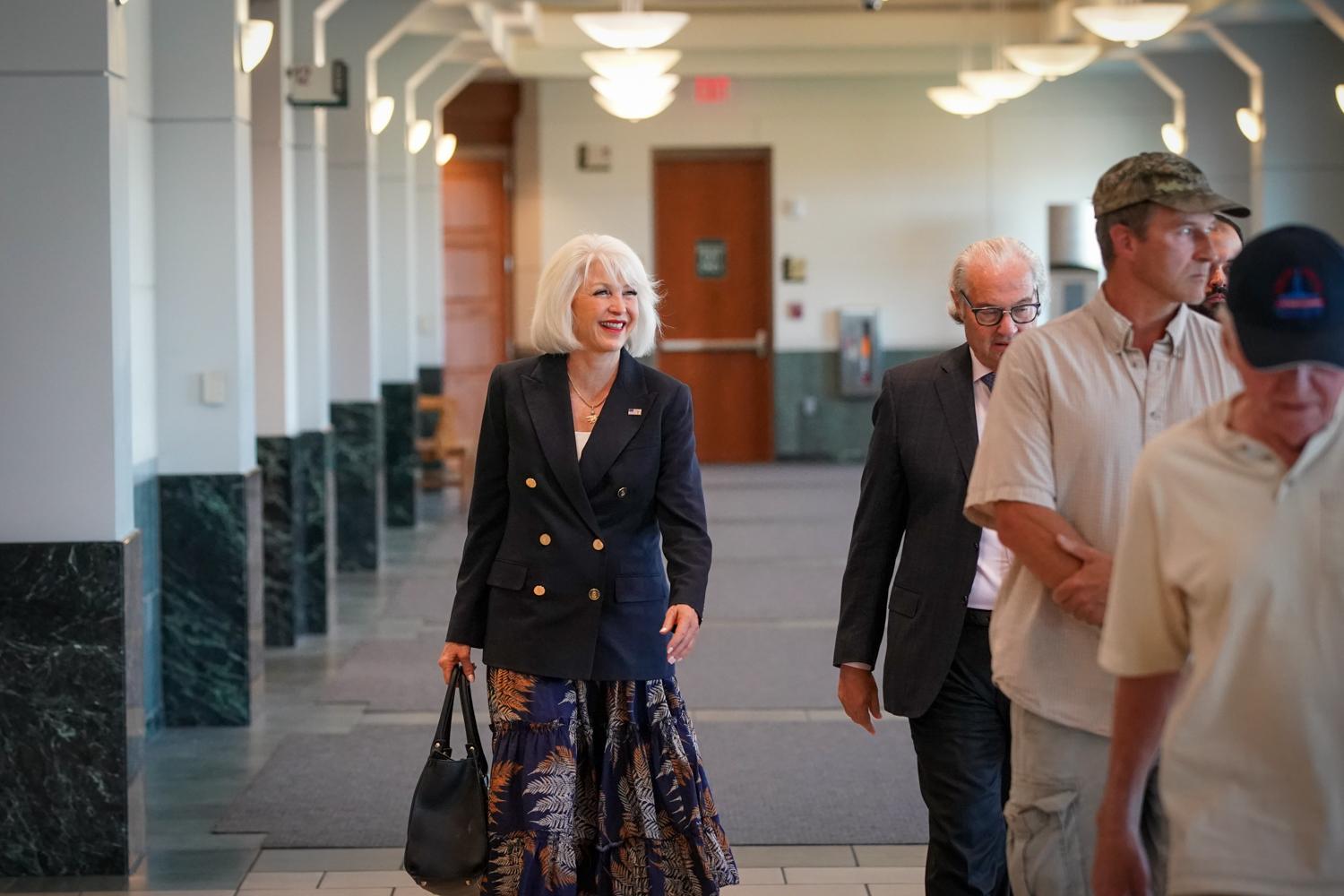
Attorneys representing four immigrants who were detained for weeks by immigration officials argued on Thursday to a federal judge that Colorado-based immigration agents are not first assessing the likelihood that they will flee, which is required by federal law.
In a lawsuit filed by the American Civil Liberties Union against the Trump administration, lawyers assert that Immigration and Customs Enforcement agents have routinely violated people’s federal rights by detaining them in Colorado, sometimes for months, without any proof that the person is a flight risk.
Federal law requires agents arresting people in violation of immigration laws to both have probable cause that those individuals are here in violation of those laws and that they would be a flight risk if they let them go.
Attorneys on Thursday brought each plaintiff to the stand and tried to establish to U.S. District Court Judge R. Brooke Jackson that they are long-time, upstanding members of their communities.
They also argued that their immigration violations didn’t merit weeks and months of detention in some of the cases, which has had ongoing negative impacts on their lives.
But what Jackson has to decide isn't whether detention is hard on people, but whether ICE is taking the steps required under the law to prove it is necessary as frequently as they are using it.
President Donald Trump has demanded more detentions and deportations, and ICE has been trying to comply by moving far beyond their initial targets of immigrants who committed crimes while unlawfully present in the U.S.
Plaintiff J.S.T. was detained in Aurora on Feb. 5 during a much-publicized raid to get alleged gang members out of the community.
J.S.T., who used his initials in court because of his pending asylum claim, has been in the country for 15 years and was heading to work in Aurora that morning. He told the judge he doesn’t do drugs, is not involved in gangs and has no criminal record in Mexico or the United States, so when he saw Drug Enforcement Administration vans in his apartment parking lot, he wasn’t worried.
But ICE agents blocked him in his vehicle as he tried to leave the parking lot.
He told the judge they never asked him whether he was involved in gangs or had guns and drugs. They didn’t ask him about family ties or his job or how long he’d lived in the apartment building. J.S.T. was detained for a couple of months and lost his apartment and all of his belongings, including his clothes and personal items, he said.
When he was finally released on bond with an ankle monitor, he had nothing left. He told the judge that if he would have received a notice to appear and had some advance warning before detention, he would have prepaid his rent and gotten a lawyer.
“It’s hard to explain,” he said, his voice breaking on the stand. “I’m scared. It’s changed my life very much. I had a stable life before, and now I have to start again from zero.”
Robert Guadian was, until Sunday, the head of Immigration and Customs Enforcement operations in Colorado. Guadian told the judge he was reassigned to a Virginia office in a nationwide shakeup of ICE offices.
Guadian said that his officers in Colorado were trained to take into account several factors before deciding to take someone in detention.
He said agents don’t just pick up and detain unauthorized immigrants without a strategy and that, even with so-called collateral arrests, which is a term when bystanders get swept up in arrests when they weren’t the intended targets, it all is purposeful.
“They do the job in the field, it’s difficult,” he said. “They weigh what’s in front of them to make a lawful arrest.”
Plaintiffs' lawyers brandished media reports and interviews given by Guadian, who has said in various places over the last nine months that they’ll pick up anyone they can who is in the country illegally. Guadian defended those statements, saying the media wasn’t nuanced in how they portrayed his sentiments. He also said he has always told his agents to make lawful arrests.
Living in the U.S. without authorization is a civil, not criminal, offense on first offense. Homeland Security officials have said since the start of the Trump administration that they are targeting for removal immigrants who committed crimes while here. But they have not said they would exclusively detain only those who committed or were accused of crimes.
Guadian acknowledged that the number of non-criminal people in detention across the country has jumped nationally from about 800 people at the end of the Biden administration to more than 16,000 people last month, without any pending criminal charges or criminal records.
Those percentages are mirrored in Colorado, according to numbers crunched by the University of California, Berkeley, according to testimony.
Caroline Dias Goncalves was pulled over in Mesa County by a local sheriff’s deputy for an alleged traffic offense, but eventually was detained by ICE for about two weeks. She was a nursing student at the University of Utah. She was brought to the United States as a child and is established in Salt Lake City now as a college student.
She told the judge that ICE didn’t ask whether she was employed and that they were uninterested in the details of her life.
Her attorneys told the judge that agents clearly didn’t assess Dias Goncalves’ flight risk, which would have been minimal. She has a pending asylum claim, an apartment and had two jobs at the time.
“What happened to me, I just don’t want it to happen to anyone else,” Goncalves said.
The two-day hearing is expected to continue on Friday. Early in the day, Judge Jackson tried to dispense with the whole affair and just asked the federal government’s attorneys if they would agree to follow federal law and an earlier-tendered consent decree in Illinois, which requires ICE agents to assess flight risk when detaining people.
“Why won’t the government just stipulate they’ll do what they say they’ll do?” Jackson said. “We can work around your issues in the form of relief, a little bit. Why don’t you come up with something?”
The federal government declined, and the hearing went forward.
- Federal judge to hear lawsuit on ICE carrying out “warrantless” arrests in Colorado
- Durango protests grow violent as a local family is detained, then separated by ICE
- Fifth-grade Douglas County teacher detained by ICE and sent to Texas
- Professional musician released on bond from ICE detention
- Coloradans conflicted over promised immigration crackdowns and the realities of how they are carried out









